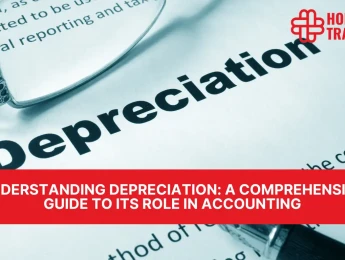- Table of Contents
- Introduction
- What Is Real Estate Accounting?
- Elements of Real Estate Accounting
- 1. Assets
- 2. Liabilities
- 3. Equity
- 4. Income
- 5. Expenses
- The Principles of Real Estate Accounting
- 1. Financing and Leasing
- 2. Financial Reporting
- 3. Asset Management
- 4. Risk Management
- 5. Disclosure
- 6. Budgeting and Forecasting
- Accounting vs. Bookkeeping for Real Estate Agents
- Why Is Accounting in Real Estate Important?
- 1. Financial Health Assessment
- 2. Compliance and Taxation
- 3. Risk Management
- 4. Investor Confidence
- 5. Strategic Planning
- Common Mistakes in Real Estate Accounting
- 1. Mixing Personal and Business Finances
- 2. Not Keeping Up with Local Regulations
- 3. Inaccurate or Incomplete Records
- 4. Overlooking Depreciation
- 5. Poor Cash Flow Management
- Real Estate Accounting Best Practices
- 1. Regular Monthly Reviews
- 2. Accurate Reporting Procedures
- 3. Keep Separate Records
- 4. Understand Local Requirements
- 5. Use Technology
- Should You Outsource Your Real Estate Accounting?
- 1. Expertise
- 2. Time Savings
- 3. Cost Considerations
- 4. Technology and Resources
- 5. Risk Management
- Conclusion
Introduction
Managing the finances of a real estate business is more than just tracking sales and expenses; it’s about understanding the complex web of transactions, regulations, and financial principles that govern the industry. Real estate accounting plays a crucial role in maintaining the financial health of a business, ensuring that every dollar is accounted for and every transaction is accurately recorded. Whether you’re a real estate agent, property manager, or investor, mastering the fundamentals of real estate accounting can provide a solid foundation for success.
This blog post will explore the key elements and principles of real estate accounting, highlighting the differences between accounting and bookkeeping, and emphasising the importance of accurate financial management in the real estate sector. We'll also delve into common mistakes made in real estate accounting, share best practices for maintaining accurate records, and discuss whether outsourcing your accounting tasks might be the right move for your business.
What Is Real Estate Accounting?
Real estate accounting refers to the process of recording, analysing, and interpreting the financial transactions related to real estate activities. Unlike general accounting, which deals with various industries, real estate accounting focuses specifically on the complexities inherent in property transactions, development, leasing, and management.
Various stakeholders employ this specialised accounting practice within the real estate sector. Real estate investors rely on accounting to track income, expenses, and profitability across their portfolios. Property managers use accounting to maintain accurate records of rental income, maintenance costs, and tenant deposits. Real estate agents benefit from accounting practices to manage their commissions, expenses, and tax obligations. Developers and construction firms use real estate accounting to monitor project costs, financing, and revenue streams.
Elements of Real Estate Accounting
Understanding its key components is essential to grasp real estate accounting fully. These elements form the foundation of all accounting activities within the real estate sector and provide a clear picture of a company’s financial health.
1. Assets
Assets in real estate accounting refer to any properties, land, or investments owned by an individual or a company. This includes both tangible and intangible assets. Tangible assets could be residential properties, commercial buildings, or undeveloped land, while intangible assets might include property rights, intellectual property related to real estate, or contractual rights like leases. Accurately valuing and reporting these assets is vital for financial reporting and investment analysis.
2. Liabilities
Liabilities represent a real estate entity's financial obligations or debts to others. This could include mortgages, loans, or unpaid property management and maintenance bills. Understanding liabilities is crucial for maintaining cash flow and ensuring all obligations are met promptly to avoid penalties or interest.
3. Equity
Equity in real estate accounting is the residual interest in the entity's assets after deducting liabilities. Essentially, it represents the ownership stake in a property or company. For investors, equity is a critical indicator of the value they hold in their real estate investments. Calculating and monitoring equity helps them make informed decisions regarding property sales, refinancing, or further investment.
4. Income
Income in real estate accounting is derived from various sources, such as rental income, property sales, or service fees. This income must be meticulously recorded and categorised to ensure accurate financial reporting and tax compliance. Tracking income also allows assessing profitability and return on investment (ROI) for individual properties or portfolios.
5. Expenses
Expenses are the costs incurred in the process of managing and operating real estate properties. These could include maintenance costs, property taxes, insurance premiums, utilities, and management fees. Properly recording expenses is essential to understanding the true cost of owning and operating real estate, affecting profitability and cash flow.
KPI | Description |
Gross Rental Yield | Income generated from rental properties |
Net Operating Income (NOI) | Total revenue minus operating expenses |
Operating Expense Ratio | Operating expenses as a percentage of revenue |
Debt-to-Equity Ratio | Proportion of debt to owner’s equity |
Cash Flow from Operations | Cash generated from property operations |
Table: KPIs of a real estate accountant
The Principles of Real Estate Accounting
Real estate accounting practice is guided by several key principles that ensure accuracy, consistency, and transparency in financial reporting. These principles are particularly important given the complex nature of real estate transactions and the significant amounts of money involved.
1. Financing and Leasing
Financing and leasing are critical components of real estate accounting, as they directly influence real estate businesses' financial structure and cash flow. Financing involves managing loans, mortgages, and other funding sources that are used to acquire or develop properties. Accurate accounting for financing ensures that all interest expenses, principal repayments, and financing fees are properly recorded, which is essential for understanding your debt obligations and financial position. On the other hand, leasing involves tracking rental income, lease agreements, and tenant-related expenses. Proper accounting for leasing activities helps manage revenue streams, understand lease terms, and ensure compliance with lease agreements. This principle also involves recognising lease incentives, deferred rent, and lease liabilities, which are critical for accurate financial reporting and decision-making.
2. Financial Reporting
Financial reporting is a fundamental principle of real estate accounting, providing stakeholders with a clear and accurate picture of the business's financial health. This includes preparing essential financial statements such as the balance sheet, income statement, and cash flow statement. Accurate financial reporting ensures transparency and accountability, enabling investors, lenders, and regulatory authorities to assess a real estate business's financial performance and stability. It also involves adhering to accounting standards, such as Generally Accepted Accounting Principles (GAAP) or International Financial Reporting Standards (IFRS), which ensure consistency and comparability in financial statements. Timely and accurate financial reporting is crucial for making informed decisions, securing financing, and meeting regulatory requirements.
3. Asset Management
Asset management is a key principle in real estate accounting, focusing on efficiently managing and optimising real estate assets. This includes tracking properties' acquisition, development, maintenance, and disposal, as well as monitoring their financial performance over time. Proper asset management accounting involves accurately recording the value of real estate assets, depreciation, and capital expenditures, which are essential for understanding the true value and profitability of the portfolio. This principle also encompasses the assessment of property performance metrics, such as return on investment (ROI) and net operating income (NOI), which help evaluate the effectiveness of asset management strategies and make informed decisions about property acquisitions, sales, and improvements.
4. Risk Management
Risk management is essential in real estate accounting, as the real estate industry is inherently subject to various financial risks. These risks include market fluctuations, interest rate changes, tenant defaults, and property damage. Effective risk management accounting involves identifying, assessing, and mitigating these risks through various strategies, such as insurance, diversification, and financial reserves. Accurate accounting for potential liabilities, contingent liabilities, and risk-related expenses is crucial for protecting the business's financial stability. Additionally, this principle involves stress testing financial models to understand the potential impact of adverse scenarios on the business's financial health, allowing for proactive measures to minimise risk exposure.
5. Disclosure
Disclosure is a vital principle in real estate accounting that ensures transparency and compliance with legal and regulatory requirements. It involves fully and accurately disclosing financial information, including any potential liabilities, related-party transactions, and contingent assets or liabilities. Proper disclosure is essential for building trust with investors, lenders, and regulatory authorities, as it provides them with the necessary information to make informed decisions. This principle also includes adhering to specific disclosure requirements set by accounting standards and regulatory bodies, ensuring that all relevant financial information is presented clearly, consistently, and comprehensibly. Effective disclosure practices help prevent legal issues and enhance the credibility of financial reports.
6. Budgeting and Forecasting
Budgeting and forecasting are critical principles in real estate accounting, as they provide a roadmap for real estate businesses' financial planning and strategic management. Budgeting involves creating detailed financial plans that outline expected income, expenses, and capital expenditures for a specific period. Accurate budgeting helps set financial goals, allocate resources effectively, and monitor financial performance against targets. Forecasting, however, involves predicting future financial outcomes based on historical data, market trends, and economic conditions. Effective forecasting allows real estate professionals to anticipate changes in the market, adjust strategies accordingly, and make informed decisions about property investments, financing, and operational expenditures. Budgeting and forecasting are crucial in ensuring real estate businesses' financial sustainability and growth.
Accounting vs. Bookkeeping for Real Estate Agents
While accounting and bookkeeping are often used interchangeably, they serve different functions, especially in the context of real estate.
Bookkeeping is the systematic process of recording daily financial transactions. For real estate agents, bookkeeping might involve tracking commissions, logging expenses, and maintaining income records from property sales. Bookkeeping primarily focuses on ensuring that all financial transactions are recorded accurately and promptly.
Accounting, on the other hand, encompasses a broader scope. It includes interpreting, classifying, analysing, and reporting financial data. While bookkeeping is about recording data, accounting is about making sense of that data to provide insights into a real estate business's financial health. Accountants for real estate agents might prepare financial statements, provide tax advice, and offer strategic financial planning based on the data collected through bookkeeping.
Both bookkeeping and accounting are essential for real estate agents. While bookkeeping provides the foundation, accounting helps make informed decisions, ensure compliance with tax laws, and optimise financial performance.
Why Is Accounting in Real Estate Important?
Accounting in real estate is not just about keeping track of finances; it plays a critical role in a real estate business's overall success and sustainability. Here’s why it’s important:
1. Financial Health Assessment
Accurate accounting allows real estate professionals to assess the financial health of their investments and operations. Financial statements provide a clear picture of profitability, liquidity, and solvency, helping investors and managers make informed decisions.
2. Compliance and Taxation
Real estate accounting ensures local, state, and federal tax regulations compliance. Accurate accounting records are essential for filing taxes correctly and avoiding penalties. Additionally, real estate transactions often involve complex tax implications, such as capital gains, depreciation, and property tax, requiring expert accounting knowledge.
3. Risk Management
Real estate professionals can identify and mitigate risks by maintaining accurate financial records and analysing them regularly. This includes managing debt levels, maintaining adequate reserves, and forecasting future financial performance to prepare for potential downturns in the market.
4. Investor Confidence
Transparency and accurate accounting build investor confidence in real estate companies and investment funds. Investors rely on financial reports to gauge the performance of their investments and make decisions about future contributions.
5. Strategic Planning
Accounting provides the data needed for strategic planning in real estate. Accounting information is vital for making sound business decisions, deciding when to sell a property, how to finance a new acquisition, or where to cut costs.
Common Mistakes in Real Estate Accounting
Even with the best intentions, mistakes in real estate accounting can occur. Here are some common pitfalls that real estate professionals should be aware of:
1. Mixing Personal and Business Finances
One of the most common mistakes in real estate accounting is failing to separate personal and business finances. This can lead to inaccurate financial records, making it difficult to track income and expenses accurately and potentially causing issues with tax compliance. Over time, this mix-up can also complicate financial planning and make it harder to assess the true profitability of your real estate ventures, potentially leading to costly errors during audits or tax season.
2. Not Keeping Up with Local Regulations
Real estate accounting is subject to various local regulations and tax laws, varying significantly by region. Failing to stay updated on these regulations can result in non-compliance, penalties, and missed opportunities for tax deductions. Additionally, each locale may have unique reporting requirements, and neglecting these can result in delays, fines, or even legal action, which can disrupt your operations and erode investor confidence.
3. Inaccurate or Incomplete Records
Inaccurate or incomplete financial records are a significant issue in real estate accounting. This can happen when transactions are not recorded promptly, or details are missing. Inaccurate records can lead to incorrect financial reporting, affecting decision-making and compliance. Over time, these errors can accumulate, leading to significant discrepancies that may require costly and time-consuming corrections and potentially trigger audits or financial scrutiny.
4. Overlooking Depreciation
Depreciation is critical in real estate accounting, particularly for property owners and investors. Failing to account for depreciation accurately can result in overpaying taxes and understating expenses, which affects the overall financial picture. Overlooking depreciation not only skews financial reports but can also lead to missed opportunities for tax benefits, diminishing the overall return on investment and potentially misleading stakeholders about the true value of assets.
5. Poor Cash Flow Management
Cash flow is the lifeblood of any real estate business. Poor cash flow management, such as not tracking rental income properly or failing to plan for large expenses, can lead to financial strain and even insolvency in extreme cases. Mismanaging cash flow can also limit your ability to invest in new opportunities, maintain properties adequately, or meet financial obligations on time, thereby affecting both short-term operations and long-term growth prospects.
Real Estate Accounting Best Practices
Real estate professionals should adhere to several best practices in accounting to avoid common pitfalls and ensure accurate financial management.
1. Regular Monthly Reviews
Conducting regular monthly reviews is a cornerstone of effective real estate accounting. This practice thoroughly reviews all financial statements, including income statements, balance sheets, and cash flow statements. By performing these reviews consistently, you can catch any discrepancies or errors early on, allowing you to address them before they escalate. Regular reviews also provide valuable insights into financial trends, enabling you to make informed decisions regarding budgeting, investments, and resource allocation. Moreover, consistent monitoring ensures that your records are up-to-date, which is crucial for accurate tax reporting and compliance.
2. Accurate Reporting Procedures
Establishing accurate reporting procedures is essential for maintaining consistency and transparency in your financial records. This involves setting up standardised processes for recording transactions, categorising expenses, and reconciling accounts. Accurate reporting helps present a true financial picture of your real estate business and aids in compliance with tax laws and regulations. Ensuring that every transaction is properly documented and categorised reduces the risk of errors and omissions leading to financial misstatements. Furthermore, accurate reporting makes generating detailed financial reports for stakeholders easier, providing them with clear insights into the business's performance.
3. Keep Separate Records
Keeping separate records for each property or real estate entity is a best practice that simplifies financial management and enhances accuracy. Maintaining distinct financial records for each property allows you to easily track the performance, income, and expenses associated with individual assets. This separation is especially important when managing multiple properties, as it allows for precise comparison and analysis of each property's profitability. Additionally, separate records facilitate more accurate tax reporting and compliance, as you can clearly delineate income and expenses for each property, ensuring that you take advantage of all applicable tax deductions and credits.
4. Understand Local Requirements
Understanding and complying with local requirements is critical in real estate accounting, as regulations can vary widely by jurisdiction. This includes staying informed about local tax laws, reporting standards, licensing requirements, and other regulations affecting your real estate business. Failure to adhere to these local requirements can result in penalties, fines, and legal complications, which can be costly and time-consuming to resolve. By staying proactive and informed, you can ensure that your accounting practices are aligned with local regulations, reducing the risk of compliance issues and safeguarding your business's reputation.
5. Use Technology
Leveraging technology in real estate accounting can significantly improve efficiency, accuracy, and accessibility. Modern accounting software for real estate can automate many time-consuming tasks, such as invoicing, expense tracking, and financial reporting. These tools reduce the risk of human error and allow for real-time data analysis, enabling you to make informed decisions quickly. Additionally, cloud-based accounting solutions offer the advantage of remote access, allowing you to manage your finances from anywhere, collaborate with team members or accountants, and maintain up-to-date records. Integrating technology into your accounting practices allows you to streamline operations, enhance accuracy, and improve your financial management processes.
Should You Outsource Your Real Estate Accounting?
Many professionals consider outsourcing real estate accounting, particularly as their business grows. When deciding whether to handle accounting in-house or outsource it to a professional firm, several factors must be considered.
1. Expertise
Real estate accounting is complex, with unique tax implications, regulatory requirements, and financial reporting standards. Outsourcing to a firm specialising in real estate accounting ensures that you have access to expert knowledge and that your financial management is handled by professionals who are up-to-date with industry-specific regulations.
2. Time Savings
Managing real estate accounting in-house can be time-consuming, especially for those who are not well-versed in accounting principles. Outsourcing allows real estate professionals to focus on their core business activities—such as property management, sales, or investment—while leaving the accounting to the experts.
3. Cost Considerations
While outsourcing has its costs, it can often be more cost-effective in the long run, particularly for small to medium-sized businesses. Hiring a full-time accountant or maintaining an in-house accounting team may not be feasible or necessary. Outsourcing offers flexibility, allowing you to scale services according to your needs.
4. Technology and Resources
Accounting firms often have access to the latest technology and software, which can improve the accuracy and efficiency of your accounting processes. Additionally, they can provide insights and reports that might be difficult to generate in-house without the right tools.
5. Risk Management
Outsourcing can also reduce the risk of errors in your accounting processes. Professional accountants are less likely to make mistakes in financial reporting, tax filings, or compliance matters. Additionally, outsourcing firms typically have insurance and other protections in place to cover any liabilities that might arise from errors or omissions.
Conclusion
Real estate accounting is vital in managing any real estate business, from small agencies to large investment firms. By understanding the principles and practices of real estate accounting, professionals can ensure accurate financial management, compliance with regulations, and informed decision-making. Whether handled in-house or outsourced, effective accounting practices are essential for the long-term success of real estate ventures. By adhering to best practices, avoiding common mistakes, and considering the benefits of outsourcing, real estate professionals can optimise their financial operations and focus on what they do best—growing their business.
For those looking to deepen their understanding of accounting and finance, our course, "Accounting and Finance for Non-Financial Professionals," offers comprehensive training tailored to real estate and other industries. Enhance your financial skills and make more informed decisions with practical knowledge and expert guidance explicitly designed for non-financial professionals.

























